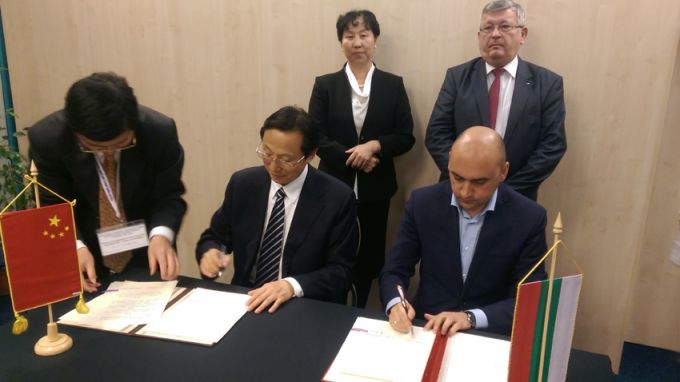
During the 9th Agro-trade and Economic Cooperation Forum between China and Central and Eastern European Countries held in Bucharest, Romania on October 29th, it became clear that Bulgaria will be playing the role of a regional center of cooperation in the field of agriculture. It was decided that an association for the promotion of agricultural cooperation between China and the countries of Central and Eastern Europe would be established in Sofia. The idea initially came from Bulgaria a year ago during the previous meetings between the 16 CEE countries and China.
According to Chinese Premier Li Keqiang, China plans to double its trade with the CEE countries and significantly increase investment over the next five years. China has already opened a credit line for CEE, totalling 10 billion US dollars. China is interested in investing in high-speed rail construction, ports, roads, as well as construction of power plants, including nuclear ones. China also has the intention to restore the mythical Orient Express, this time through ultrafast trains linking Beijing with Paris.
China has been increasingly turning to the EU when it comes to imports of high-quality food and agricultural goods. In this respect, Bulgaria with its rich traditions in agriculture has a lot to offer. "It is important for Bulgaria as an agricultural country to be the driving force of the relations between China and Central and Eastern Europe in the sphere," said Bulgarian Agriculture Minister Grudev upon signing of the agreement establishing the Association in the country to promote agricultural cooperation between China and CEE. Its main task will be facilitating business relations between China and CEE. According to Grudev, this is the first step to institutionalizing cooperation between CEE and China in the field of agriculture and food. The association will be hosted by the Bulgarian Ministry of Agriculture and Food.
Bulgaria has long been known in China for its yogurt, which is produced on site under Bulgarian license. A significant breakthrough has been achieved in the trade of Bulgarian wine. According to the Executive Director of the Agency on Vine and Wine Krasimir Koev, in 2013 Bulgaria exported a total of 1.5 million liters of wine to China. Just in the first half of 2014, exports reached 2 million liters.
Besides yogurt and wine, China imports from Bulgaria rose oil, honey and bee products, processed meat, fruits and vegetables. The fruitful cooperation between the two countries can be further expanded in the field of agricultural engineering and agricultural sciences. Among the partners of Bulgaria outside the European Union, China comes second after Turkey as a destination of Bulgarian exports.
English: Alexander Markov
The likelihood of Bulgaria joining the eurozone on 1 January 2026 is growing by the day. The country would become the 21st EU member to adopt the single currency. The signals are coming both from the Bulgarian government, which has repeatedly stated..
The Bulgarian National Bank (BNB) has again reduced the key interest rate in the country . As of May 1, it will now be 2.24 percent. The decrease compared to April is 0.15%, when it was 2.39 percent. This is the eighth consecutive month of a decrease in..
An analysis by the Ministry of Economy and Industry shows that in 2024, Bulgaria's trade with the United States accounted for 1.7% of the country’s total trade volume, with exports to the U.S. making up 2.6% of total exports and imports from the U.S...
The likelihood of Bulgaria joining the eurozone on 1 January 2026 is growing by the day. The country would become the 21st EU member to adopt the single..

+359 2 9336 661
